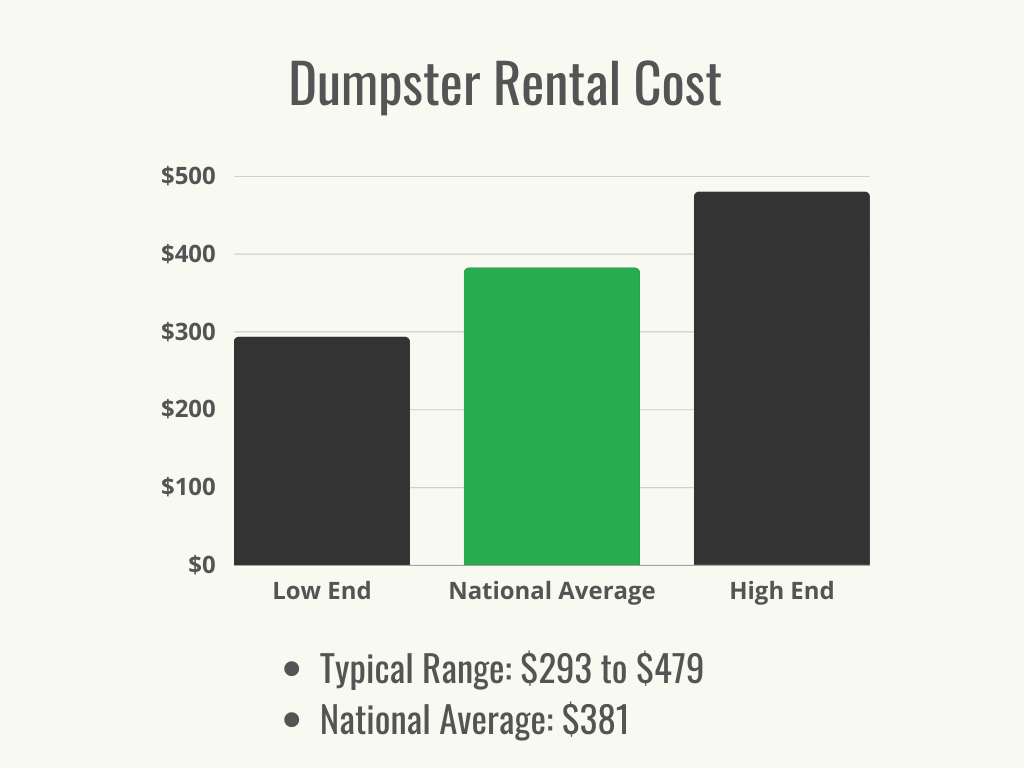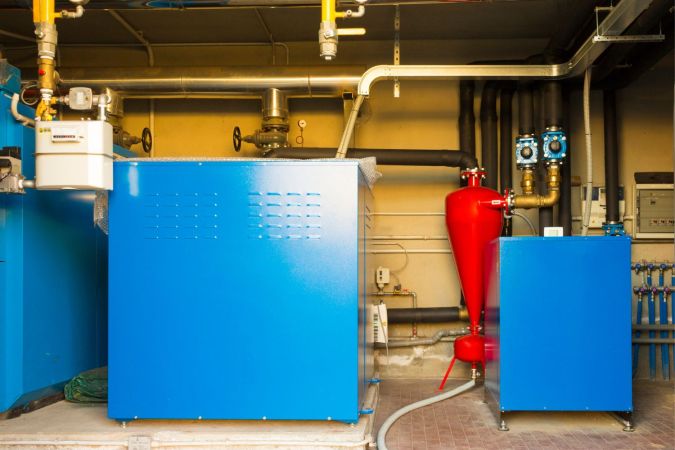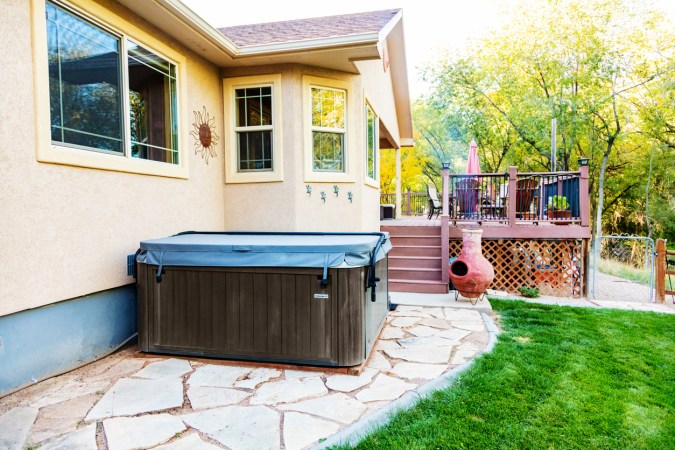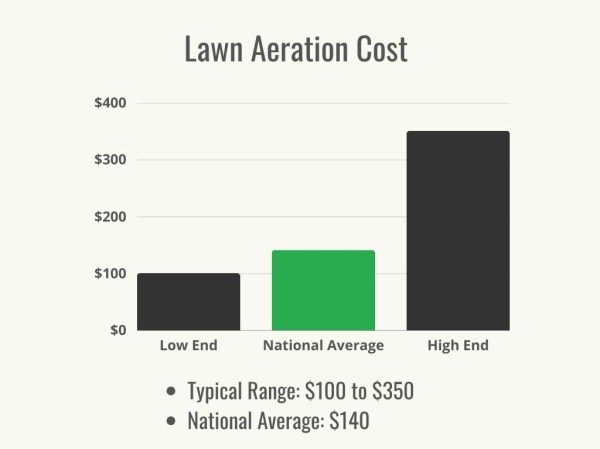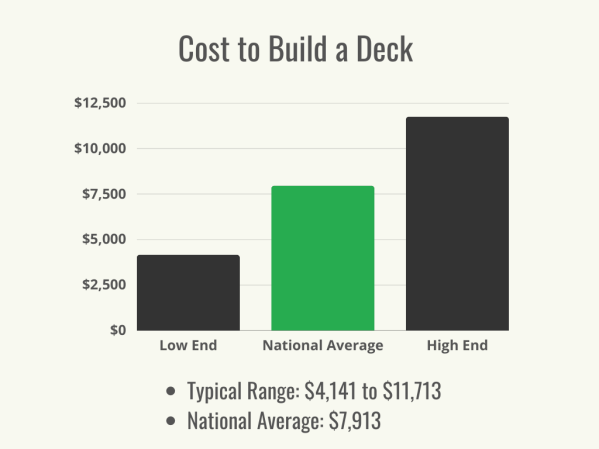We may earn revenue from the products available on this page and participate in affiliate programs. Learn More ›
Highlights
- The typical cost range to rent a dumpster is $293 to $479, with customers paying a national average of $381.
- Some of the main factors in calculating dumpster rental costs include the size of the dumpster, the type and brand of the dumpster, the length of the rental period, the type and weight of the debris, the availability in the customer’s location, and any additional fees.
- It may be necessary for a customer to rent a dumpster when completing a landscaping, construction, or renovation project; moving to a new home; doing major cleaning; or if the neighborhood is organizing a coordinated cleanup.
As handy as a garbage can is for handling a week’s worth of trash, there are times a homeowner or renter simply needs a larger dumpster to handle the volume of debris. Dumpster rentals aren’t only for commercial construction projects, although that’s a common use. Any time someone has an excessive amount of yard waste, trash, or remodeling debris that needs to be removed, renting a dumpster from one of the best dumpster rental companies is a good idea. But how much does dumpster rental cost? HomeAdvisor and Angi average the cost to rent a dumpster at $381, but it could range between $293 and $479. Since dumpsters are large and unwieldy containers that require special equipment to move them, dumpster rental prices include delivery and removal fees. Still, customers will need to ask if that price includes the dumping fee, which usually averages $40 to $65 per ton. The size of the dumpster and the length of time the customer needs it on-site will also influence the total dumpster rental cost. This guide will help customers learn more about the costs of dumpster rental.
Factors in Calculating Dumpster Rental Cost
The cost to rent a dumpster is calculated by a few essential factors: dumpster size, type, and brand; debris type and weight; rental length; dump fees; and availability within the customer’s geographic location. Customers will want to collect a few quotes from local companies to determine the best rate for their region, but these guidelines will provide an initial estimate customers can work from.
Dumpster Size
Dumpsters are measured by the cubic yard (shortened to just “yard”) rather than by length and width. Some companies rent garbage dumpsters as small as 2 yards and up to as big as 40 yards. If a customer knows the size and volume of debris they need to dispose of, this will help them calculate the best dumpster size for their project. Since it can be hard to visualize dumpster size by the volume it can hold, customers may want to consider measuring the space where the dumpster will sit. Jon Behm, senior content specialist at Dumpsters.com, suggests that customers “…consider going to the driveway and marking the width and length of the dumpster. This helps give a better visual of just how much space you’re working with.” Alternatively, a customer can think in real-life measurements. According to Behm, “A 10-yard dumpster can usually hold around 3 [pickup] truckloads of debris.” Visualizing the size this way can help customers determine the ideal dumpster size for their needs.
The average residential cleanup or small renovation project will typically require a 10-yard dumpster, which costs $225 to $450 to rent for a week. Large dumpster rental costs will be higher due to the increased size. Some other common dumpster sizes and their weekly rental costs are shown in the graphic below.
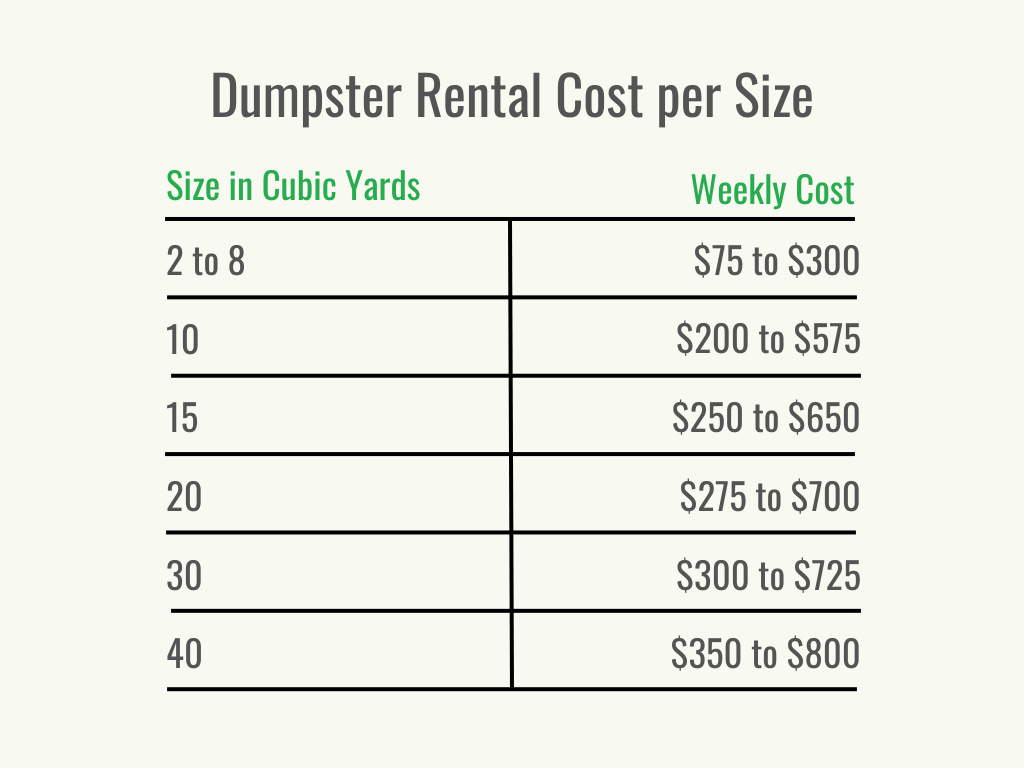
Dumpster Type
Commercial dumpsters are usually used on a long-term basis by businesses. Construction dumpster rental costs are typically higher than residential as this type of dumpster has a bigger capacity to hold construction debris, and they’re usually roll-off dumpsters that literally get rolled off a flatbed truck. They often have a second door for access in addition to the open top. A 20-yard roll-off dumpster averages $250 to $650 per week. Residential dumpsters are smaller to accommodate the limited space and debris at a house. A 2-yard dumpster costs around $75 to $125 for a week.
Dumpster Brand
The brand of dumpster a homeowner rents will have an effect on the total rental price. The specific dumpster rental companies a customer can choose from will depend on the area in which they live. Lower-cost options include Burrtec and Recology, while Waste Management and the cleverly named Bin There Dump That have prices toward the top end of the range.
| Dumpster Brand | Weekly Rental Cost |
| Bin There Dump That | $350 to $600 |
| Burrtec | $200 to $400 |
| Granger | $250 to $500 |
| Recology | $250 to $400 |
| Redbox | $300 to $800 |
| Republic Services | $400 to $550 |
| Waste Management | $450 to $650 |
Debris Type and Weight
The type of debris a customer wants to discard can impact the cost of dumpster rental. For example, some companies will offer different dumpster rental rates for yard waste, construction waste, or general household waste. The weight of the waste will also impact the cost since it will dictate the size of the dumpster required. According to Behm, “Dumpster rentals come with weight limits that allow for safe transportation as dictated by law. Some items, like cement or roof shingles, are extremely small, but also extremely heavy. As a result, you’d hit the weight limit far before you’d fill the dumpster to the top.”
In general, a 2-cubic-yard dumpster can hold around 400 pounds of waste; this size dumpster can cost between $75 and $125 per week to rent. Customers who need a dumpster that can handle 5 to 6 tons of waste will pay up to $800 per week for a 40-cubic-yard dumpster. Behm suggests that calling the dumpster rental company and talking through the project is often “the best way to ensure you get a dumpster size with a proper weight limit to handle the whole job.”
Rental Length
Dumpster rental prices are often set for weekly or monthly rates to accommodate projects that take extra time to complete. However, customers who live in an area with high demand for dumpster rental may be able to rent a dumpster at a daily rate of $25 to $80. Customers will want to make sure they return it on time to avoid late fees. Other common rental lengths include weekly and monthly, with monthly dumpster rental costs often being the best value for money. The table below shows the average cost ranges for each rental length.
| Rental Length | Average Cost |
| Daily | $25 to $80 |
| Weekly | $350 to $550 |
| Monthly | $500 to $1,200 |
Dump Fees
Renting a dumpster is only part of the process of debris removal. Once the customer has loaded the container, the dumpster company needs to dispose of the debris. Waste disposal centers charge a fee for accepting trash, especially hazardous materials, so those fees are passed on to the person who rented and filled the dumpster. On average, customers can expect to pay $40 to $65 per ton, but this fee is sometimes included in the rental price, so they’ll want to ask at the time of rental and get it in writing.
Geographic Location and Availability
Dumpster rental prices vary by location, as is typical for most goods and services. The higher costs of living in urban areas tend to increase prices over what a customer would pay in a suburban or a rural area. In regions with a lot of construction, it’s also possible for customers to see higher prices due to demand. Renting a dumpster by the day is more likely to be an option for customers in high-demand areas, but late fees may also be higher as a result. The table below shows the average dumpster rental cost in different cities, though customers can search online for “dumpster rental near me” to get quotes from local companies.
| City | Average Cost per Week |
| Boston, Massachusetts | $400 to $540 |
| Cincinnati, Ohio | $300 to $490 |
| Denver, Colorado | $300 to $390 |
| Knoxville, Tennessee | $290 to $780 |
| Long Island, New York | $380 to $600 |
| Minneapolis, Minnesota | $280 to $480 |
| Newark, New Jersey | $380 to $600 |
| New Haven, Connecticut | $310 to $520 |
| Providence, Rhode Island | $300 to $450 |
| San Diego, California | $380 to $580 |
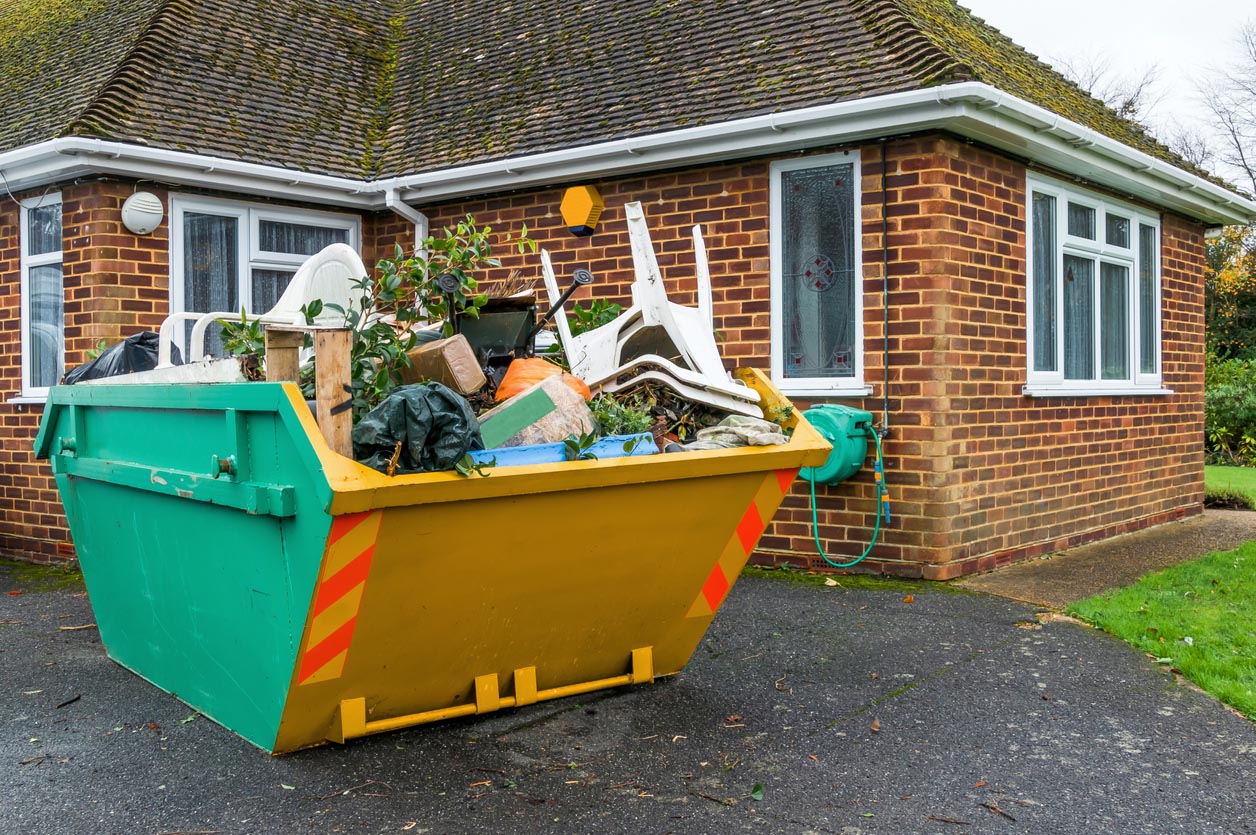
Additional Costs and Considerations
As with most rentals, there are always a few additional fees and costs that may or may not apply to a customer’s situation. Depending on the project, dumpster rental prices might include permit fees, late or overage fees, and hazardous waste fees. Some of these fees can’t be avoided due to state regulations for handling hazardous materials, but customers can avoid late fees in most cases.
Permits
Since dumpsters take up a lot of space, they may block the sidewalk or street, which becomes a concern for the city. According to Behm, “Permit requirements will vary by location, but a common rule of thumb is that one is needed whenever the dumpster is on public property.” Customers will need to ask the dumpster rental company or their local municipality if they need a permit to park a dumpster on their property because, as Behm warns, “Not having a permit when it is required could result in a dumpster delivery delay or even a larger fine by the city than the permit would have cost.” Permits for dumpsters range between $10 and $100, and in some cases, the dumpster rental company may be able to acquire one on behalf of the customer.
Late Fees and Overage Fees
If a customer keeps the garbage dumpster longer than they originally planned, they’ll likely get billed for the extra days. A typical late fee runs between $5 and $10 per day, but customers will want to make sure they ask, as this price can vary due to demand and location.
It’s also important for customers to note that it’s illegal to transport a container of debris that’s overflowing above the rim of the dumpster. Doing so puts other drivers at risk. If a customer overloads the dumpster, they’ll likely pay $40 to $100 per ton over the limit. The company will probably have to unload some of it into a second dumpster for disposal.
Additional Fees
Customers will want to make sure they ask about any additional fees they may be charged during their dumpster rental period. In addition to landfill, late, and overage fees, customers may be charged extra for heavy debris or for dumpster delivery to a remote location. Heavy debris requires a different type of dumpster that can cost $300 to $550 per week, and customers who live in remote areas may need to pay an extra $0.50 to $0.65 per mile to have the dumpster delivered to their home.
Hazardous Waste
It’s advised for customers to familiarize themselves with common dumpster rules when it comes to the types of waste they can toss. “Most items restricted from dumpsters are often not set by the rental company,” explains Behm. “Instead, each landfill and transfer station decides what it will or will not accept.” Waste treatment centers have regulations for handling hazardous materials, so customers will want to be sure to notify the rental company of what they plan to put in the dumpster and what actually ends up inside. “[There] are three types of waste that are banned at landfills by nationwide law: flammable, toxic and hazardous materials,” says Behm. “These material types can hurt the infrastructure of a landfill or may cause environmental damage. So anything like solvents, cleaning fluid, batteries, paint, and fuel will never be allowed in a landfill.”
There are extra fees associated with disposing of hazardous materials, and some items are entirely prohibited in many cases, such as Freon, asbestos, or computers. It can cost between $15 and $100 to dispose of an appliance such as a refrigerator. If the customer dumps hazardous waste, they may be fined up to $500—and the hazardous waste will be returned to them to dispose of appropriately.
Dumpster Rental Cost by Type of Dumpster
The customer will need to choose the right kind of dumpster to accommodate the space they have, the length of time they need it, and the amount of debris it can hold. Fortunately, there are several types of dumpsters customers can choose from—and plenty of sizes, too. The most common options and their costs are listed below.
| Type of Dumpster | Average Cost |
| Dumpster bag | $100 to $180 for pickup |
| Junk removal service | $150 to $400 per visit |
| Residential dumpster | $100 to $300 per week |
| Roll-off dumpster | $200 to $800 per week |
Dumpster Bag
An interesting alternative is to purchase a dumpster bag from a local hardware store for around $30. These come collapsed, so the customer simply sets it up in their driveway and fills it with any debris such as plywood, tile, or bags of trash. Some are large enough to hold 3,300 pounds of debris. When it’s full, the customer will call their local waste management company to have it picked up for disposal at a cost of $100 to $180.
Junk Removal
Those who prefer not to handle trash and dumpsters can hire a junk removal service. The best junk removal services will come and pick up just about anything, anywhere—though usually not major construction debris. It’s beneficial when a homeowner or renter has old furniture or hoarded items that need to be disposed of, such as if the customer needs to get rid of a couch. The customer will pile the items together in one area, and the service will remove it for an average junk removal cost of $150 to $400.
Residential Dumpster
Residential dumpsters are small-capacity dumpsters that work well for smaller jobs such as cleaning out an apartment or doing a small remodel that doesn’t have long pieces of debris. A residential dumpster rental costs around $100 to $300 per week.
Roll-Off
Roll-off dumpsters are the most common style of dumpsters. Customers will find wheels on commercial and construction dumpsters but not usually on residential dumpsters. Roll-off dumpsters are large-capacity dumpsters transported to the site on a flatbed truck and rolled off the truck onto the heavy-duty wheels. A roll-off dumpster rental costs an average of $200 to $800 per week.
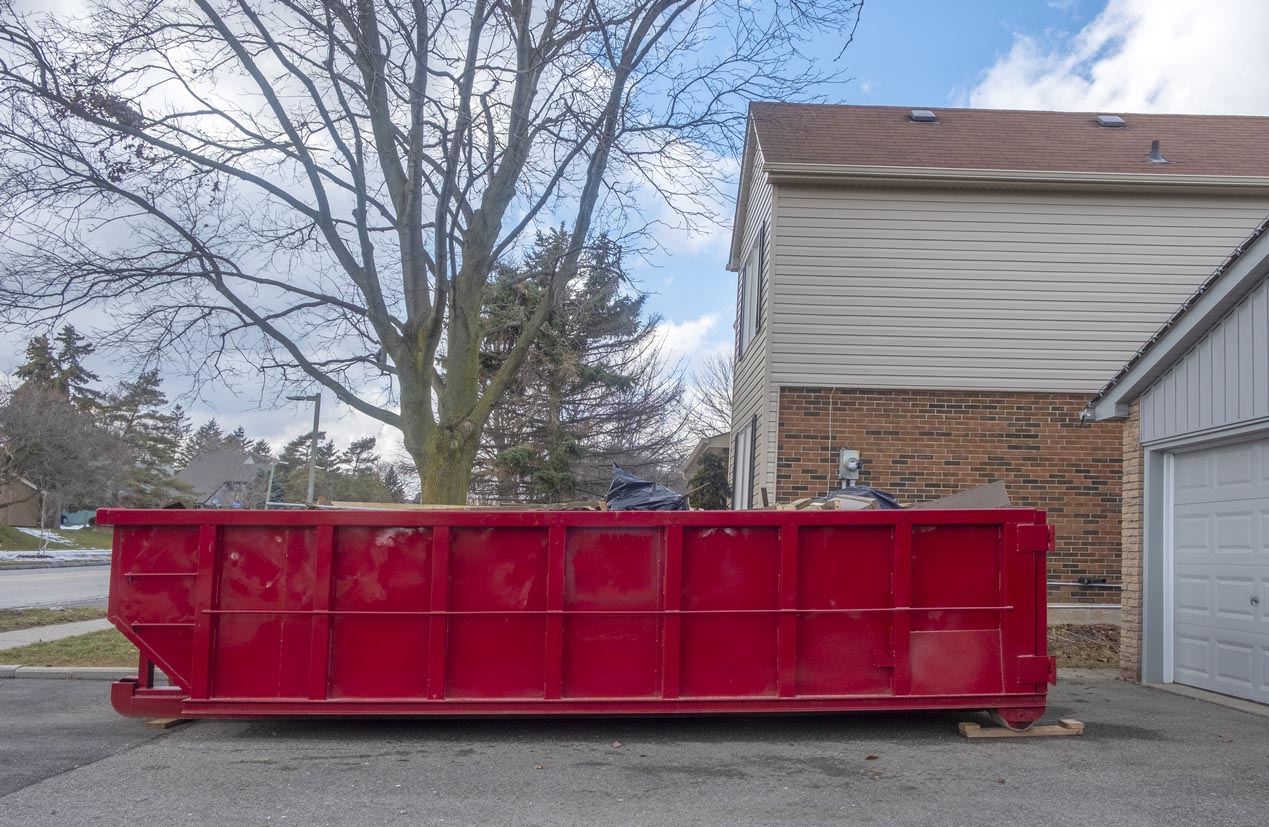
Do I need to rent a dumpster?
Dumpsters seem to be synonymous with major construction projects, but there are plenty of other reasons a homeowner or renter may want to rent a dumpster. Doing a major landscaping project is one of the top reasons for renting a dumpster, as is a roof replacement, moving, and any serious cleaning projects for a house or neighborhood.
Landscaping
When a resident starts tackling their patch of weeds, overgrown bushes, or trees, they’ll quickly find they can produce a bigger volume of debris than the average yard waste trash bin can handle. Sure, the resident could stack the debris in the yard and slowly dump some each week, but it quickly becomes an eyesore, as well as an insect and rodent haven. Renting a dumpster helps residents remove all the debris at one time for a tidier and less stressful experience. It’s especially critical to get a dumpster if a significant storm causes a lot of debris that needs attention. Residents and their neighbors could pitch in together to rent a large dumpster and help everyone clean up the neighborhood.
Construction and Renovation
Construction and renovation projects are the most common reasons people consider renting a dumpster. These projects have a way of producing tons of waste, so having a large dumpster on hand is especially helpful. If a homeowner uses a general contractor, they may include the rental in their price; otherwise, the homeowner will want to get one lined up for the project.
Roof Replacement
Roofing shingles are heavy. Those heavy shingles get shoved off into a dumpster below the house when a roof is being replaced. It’s the most efficient way to collect debris that is also incredibly messy as the shingles crumble during removal. This is just as true for tile, metal, or shake roofs. Every 100 square feet of roofing that’s removed creates 250 to 360 pounds of debris that gets recycled or disposed of.
Moving
While moving is a huge inconvenience, there is one huge benefit: The resident can finally face all the items that need to be discarded or recycled. The longer someone has lived in one place, the more items they’ve accumulated, so many homeowners or renters use a dumpster to help remove the large number of items they no longer need. Once they’ve emptied their former home, the customer can then hire one of the best move-out cleaning services to help freshen the home for the new occupants. Although residents may wonder if this is necessary, in most cases it’s well worth the move-out cleaning cost to make sure the home is welcoming for its new residents.
Major Cleaning
Homeowners may get the urge to do a massive cleaning project or go through all of the items in a house, garage, or shed. Or a homeowner might pass away, and the relatives need to tidy the house to sell it. Rather than making a half-dozen trips to the dump—using a neighbor’s pickup—homeowners can rent a dumpster and get the job done in one fell swoop.
Neighborhood Cleanups
Some cities or neighborhoods organize yearly cleanups to tidy the area in the spring or fall. When the cleanup is coordinated, several people can pitch in on dumpster rental for trash to accommodate the volume of debris (from indoors or outdoors). Residents will just make sure to monitor that nothing hazardous ends up in the dumpsters.
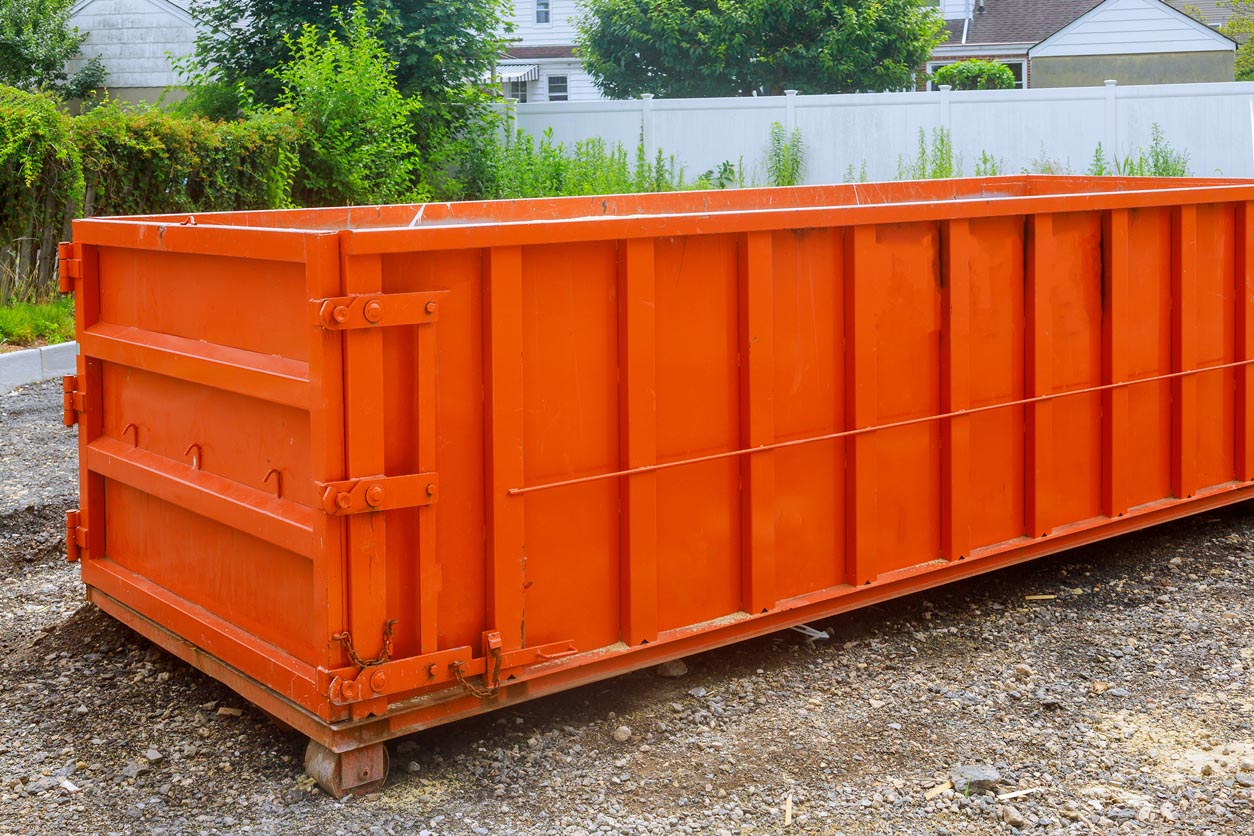
How to Save Money on Dumpster Rental Cost
Dumpsters aren’t the most costly item one could rent, but they’re also not the cheapest, especially when it’s an additional fee on top of another expensive project. According to Behm, “The best way to save money on a dumpster rental is to have a good idea of what you’re tossing when you place your order. The more accurate of an idea you can give about the material type, weight, and amount, the more precise the rental specialist can be in setting up an accurate size and weight limit.” Customers looking for cheap dumpster rental can also consider the following tips for saving money on dumpster rental prices.
- Calculate the right size. Consult with the company to choose the right size for your project. Too small and you’ll pay overage fees, but too big and you’ve paid more for the rental than needed. Be up front about what and how much you intend to dispose of so you can get the most accurate quote and size possible.
- Get multiple quotes. Rates vary from one company to another. You may be able to price match with an earlier availability date if you call several companies.
- Ask about extra fees. Know exactly what conditions and situations can tack on extra fees so you can avoid them if possible. “Always find out what is included when you’re given an initial quote,” advises Behm. “A lot of companies will leave out key expenses such as disposal fees and fuel surcharges until after pickup, tacking on more unexpected costs that ultimately make the final price higher. This can make it really tough to budget effectively.”
- Check for discounts. Many dumpster rental companies have discounts for military, seniors, and first responders.
- See if you can rent for a day or two. While this is not always an option, a company may be able to lease you a dumpster for a shorter period if you’re certain you can have it picked up in time.
Questions to Ask About Dumpster Rental
The fees associated with dumpster rental aren’t overly complicated, but for customers who want to make sure they’re getting the right size and style, the process can feel daunting. Most importantly, a customer won’t want to feel like they’re being nickel-and-dimed because of unexpected fees. Customers can ask dumpster rental companies any of the following questions to help guide their decision-making process so they know what to expect.
- What do you include in the flat-rate rental fee? (Pickup, delivery, and disposal is most common.)
- Do you have a calculation guide to help me decide the best size to rent?
- Do you recommend residential or construction dumpster rental for this project?
- Will I need roll-off dumpster rental or can I manage my waste with a dumpster bag?
- What happens if I overload the dumpster?
- What is your late fee?
- Is there a discount for returning it early?
- Do I need a permit? If so, do you obtain it and provide me with a copy?
- When can you deliver the dumpster?
- What time do you pick it up on the last day of my rental?
- What kinds of materials are not allowed in the dumpster?
- How much space do you need to park it?
- What are the weight limits and dimensions of this dumpster?
- What if I need the dumpster for a few extra days?
- What if I fill this dumpster faster than expected? Do I rent a second one, or do I have it dumped and returned?
- Do you cover the cost of any damages to my driveway if the dumpster is dropped improperly?
FAQs
Renting a dumpster makes a big job a little easier since customers only have to worry about hauling trash to a dumpster on their property. It’s a reasonably cut-and-dried transaction: The customer rents the dumpster, the rental company drops it off, the customer fills it, the rental company removes and dumps it. Still, there are a few complexities that can make one wonder about dumpster rental costs. Customers can consider the following answers to some frequently asked questions to feel more confident about the process.
Q. How long can I rent a dumpster?
Dumpsters can be rented for periods ranging from days to months, depending on your needs. Construction projects usually require renting them for the longest period, while cleaning out an old house may only require renting one for a few days. If you need a dumpster for an extended period, such as for a construction project, you’ll need to look at leasing a long-term commercial dumpster.
Q. Do I need to clean a dumpster before returning it?
No. Since you are not responsible for dumping a dumpster (you don’t have the right heavy equipment to wrangle the dumpster to the waste management center), you will not have to make sure it’s clean before returning it. Once it’s removed from your property, it’s out of your hands and in the hands of the dumpster rental services.
It’s possible that you could get a reduced rental rate if you’re using the dumpster for what’s considered a “clean” load. This would be any job where it’s basically the same type of recyclable debris like an entire roof of shingles or broken-up concrete.
Q. What size dumpster do I need?
First, get really honest and transparent about exactly what you’re going to be discarding. A small, half-bath remodel could require only a 10-yard dumpster, but a whole house cleanup might need a 40-yard dumpster. One rule of thumb is that 1 cubic yard holds between 5 and 6 13-gallon bags. If your debris is from the yard, you’ll need to consider the length and weight of the material you’re disposing of.
Ask each company you call for a quote what they recommend for your situation. If it ends up being a decision between an 8-yard and a 10-yard dumpster, it’s probably best to choose the larger one to play it safe since you’ll be charged for overfilling a smaller dumpster.
Sources: Angi, HomeAdvisor, Fixr
